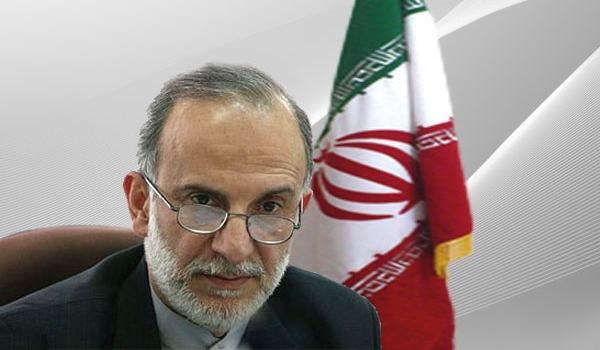 TEHRAN (FNA)- Seyed Mehdi Mostafavi, a senior member of Iran's Strategic Foreign Relations Council (which plays an advisory role to the Supreme Leader), underlined that the Group 5+1 (the US, Russia, China, Britain and France plus Germany), and specially Washington, should be blamed for a possible failure of nuclear talks with Tehran.
TEHRAN (FNA)- Seyed Mehdi Mostafavi, a senior member of Iran's Strategic Foreign Relations Council (which plays an advisory role to the Supreme Leader), underlined that the Group 5+1 (the US, Russia, China, Britain and France plus Germany), and specially Washington, should be blamed for a possible failure of nuclear talks with Tehran."If the negotiations don�t yield results, the other side should account for its weak logic, excessive demands and rejection of of logical, legal and rational stances," Mostafavi told FNA on Monday.
He voiced regret that the main party in the nuclear talks between Tehran and the world powers is the US, and said unfortunately, other members of the G5+1 have either kept mum or are obedient to the US and therefore, the main negotiator on Iran's opposite side is Washington.
Stressing that the nuclear talks is not the only area that Iran can develop its foreign policy, Mostafavi said other countries expect Tehran to play its influential role in the region and the world and help the settlement of problems.
In relevant remarks on Sunday, Iranian Parliament Speaker Ali Larijani stressed that US President Barack Obama should account for any possible failure in the nuclear talks between Tehran and the world powers.
"The US president has said recently that they pressure Iran to accept their view on the nuclear issue. Now the goal that they pursue through holding negotiations with Iran has become clearer, they say that we should surrender to their demand. In which part of the world such a behavior is called negotiation," Larijani said, addressing an open session of the parliament in Tehran.
He underlined Obama's inability to take a wise decision given the internal pressures he is facing, adding that he wanted Iran to surrender to Washington's irrelevant demands or lead the negotiations into failure.
"The US president should know that the Iranian nation will not surrender and with such a wrong policy in the negotiations, he should account for the failure of the talks," Larijani underscored.
His remarks came after the US congress (mostly grabbed by the Republicans) threatened to impose new sanctions against Iran, an issue which has been described as a redline by Tehran in the interim nuclear agreement reached with the world powers in November 2013.
In January, Iranian Foreign Minister and top negotiator Mohammad Javad Zarif called on the US officials to stop the policy of pressures against Tehran, adding that the negotiations with the world powers had entered a complicated stage.
"If the Americans want to reach results, they should put an immediate end to the dangerous game of pressuring Iran," Zarif told reporters in Tehran.
Elaborating on the latest round of talks between Tehran and the G5+1 which was held in Geneva last month, he said, "The negotiations have become very complicated and we are studying the details. Positions on general points are clear; we have been studying the details for a long time."
"As I have repeatedly stated, the principle of enrichment, the necessity for removing the sanctions and preserving Iran's nuclear program have all been accepted and we have been negotiating on details for several months now," Zarif said.
Asked if the Iranian side was ready to reach a comprehensive agreement with the world powers by mid March which marks the new Iranian year, he said, "We believe that if the other side shows determination and good will, one week will be enough for reaching an agreement" and the Iranian side was ready for a final deal by the anniversary of the victory of the Islamic Revolution in Iran on February 11.
The 10th round of negotiations between Iran and the six world powers was held in Vienna from November 18 to 24, where the seven nations decided to extend the talks until July after they failed to strike an agreement.
The latest round of the nuclear talks between the two sides was held at the level of deputy foreign ministers in Geneva, Switzerland, on January 18.
The two sides decided to continue their talks in February.
Both Iran and the G5+1 negotiators have underlined that cutting a final deal before the July 10 deadline is possible.
By Fars News Agency
The Iran Project is not responsible for the content of quoted articles.











